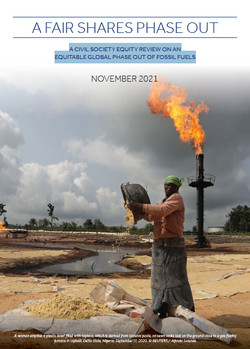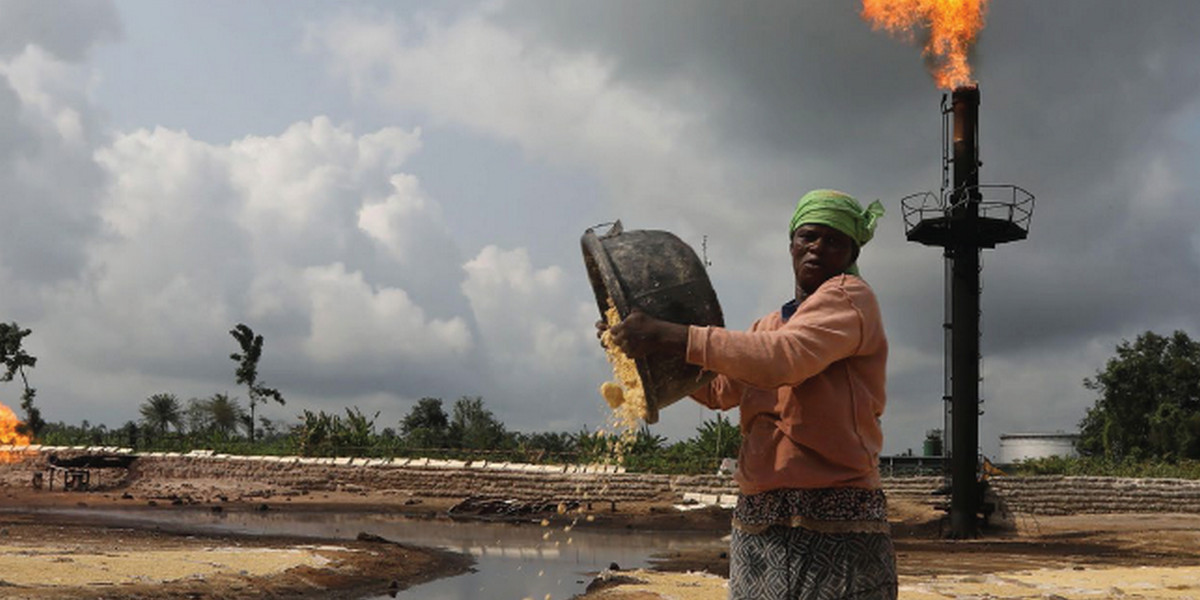A civil society equity review on an equitable global phase out of fossil fuels, November 2021.
As climate negotiations enter in full speed at the UN COP26 in Glasgow, a new report, released by over 200 civil society organisations and social movements including CIDSE, focusses on the urgently needed phase out of fossil fuels, especially of fossil fuel extraction, and raises critical equity questions that arise in the context of this phase out.
Building on previous CSO Equity Reviews, the 2021 report includes:

- An updated equity assessment of NDCs (Nationally Determined Contributions) revealing how current pledges for climate action remain deeply inadequate and unjust. While the wealthiest countries (US, UK, EU, Japan) remain far-below contributing their fair shares of the global effort, some less-wealthy countries (China, India, South Africa, Kenya) have mitigation pledges reaching about — or above — their full fair shares;
- Thirteen country profiles to demonstrate the diversity of challenges and opportunities in addressing fossil fuel production at the national as well as international level, and highlights real-world problems playing out in key countries;
- An introductory framework for addressing “supply-side equity” issues relating to the phaseout of fossil fuel extraction, as well as a number of possible solutions including both national and international interventions.
The report makes five recommendations to equitably align fossil fuel production with 1.5°C:
- Deliver on long overdue commitments from the Paris Agreement (and previously), particularly the wealthiest polluters must contribute their fair share to solving the crisis by cutting emissions deeper and faster while cooperating with less wealthy nations by providing climate finance for technology, adaptation, as well as loss and damage;
- Recognize fossil fuels as the key contributor to the climate crisis and creating new pathways and international platforms to urgently end expansion, phase down production, and fast-track just transitions for all countries and communities;
- Prioritize international cooperation with fossil fuel dependent countries that are least able to adjust by providing resources for renewable energy systems, workers’ and communities’ just transitions, as well as broader economic diversification and transformation;
- Strengthen the building blocks of a fair shares phase out, which could include a First Movers Club of countries committed to ending the financing and extraction of fossil fuels, a Registry of global fossil fuels reserves to increase transparency and accountability, a Commission dedicated to carrying forward diplomatic discussions towards a phase out, and enhanced international legal instruments such as a fossil fuel non-proliferation treaty to equitably align production within 1.5°C;
- Change the rules of global trade, investment, finance and technology to increase “policy space” for governments expediting emergency policies and exploring new programs to encourage commerce that respects the rights of people and the planet over profit.
See also: Statement by Catholic leaders in G20 countries on consigning fossil fuels to history, October 2021
Cover photo: A woman empties a plastic bowl filled with tapioca, which is derived from cassava paste, on sewn sacks laid on the ground close to a gas flaring furnace in Ughelli, Delta State, Nigeria, September 17, 2020. Credit: Reuters / Afolabi Sotunde.

